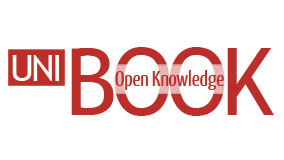Course description
In any social context, conflicts, as well as being inevitable, are also essential for grasping the potential of diversity and for growing as a person. Learning to deal with conflicts in a constructive way is essential. In reality, however, we give the word ‘conflict’ negative connotations and this is often what makes us react in a dysfunctional manner.
In private it is often easier to express dissent in a discussion or talk about our needs and hurt feelings.
But the more we feel more intimate with the other party (e.g... partner, family member or friend), the more we feel that he/she will be able to understand and forgive us for our emotional spills.
In the professional world, when we are in the midst of a conflict, we feel more restrained in expressing our needs or feelings openly, tending more to hide difficulties, until the conflict explodes in a completely unexpected way for the counter-party. Having complete emotional control is often seen as an ideal professional approach; 'emotional control', however, should not imply a denial of the emotional world.
Conflicts in the private and the professional worlds have the same general characteristics. What changes is our way of dealing with them, depending on the context, situations and interlocutors.
Course Information:
- The course is structured in 5 weeks, sub-divided into modules.
- The modules have different lessons within them, consisting of texts, videos, quizzes and individual self-reflection exercises.
- You can get involved by doing the Role Plays, which allow you to experiment with different reactions to some example conflict situations.
- We advise you to follow the pathway in a linear manner, but you can freely move between content, if it is more useful for your learning style.
- It is important that you respect your own pace: the length indications are a rough estimate, but your pace should guide you in the best way for the enjoyment and individual reflection on the topics covered in the proposed pathway.
- There are also some additional resources, collected in additional material, so you reach a level of detail greater in some topics of your interest and / or tackle some specific tests that can give you some further indication on your attitude.
Further editions of this course will be activated each academic year.
This MOOC is listed under the eLene4work “Orientation Guide”.
Prerequisites
There are no prerequisites to take this course, but all of your personal experiences related to conflicts management will be a useful starting point.
Quizzes and scores
The course entails questions: some of them in the form of self-assessment quizzes, others as hints for personal reflection. You are not required to answer these questions to complete the course. Instead, the quiz you will find at the end of each week
will be evaluated.
Certificate of Accomplishment
The Certificate of Accomplishment will be released to anyone who successfully completed the course by answering correctly to at least 60% of the questions by the end of the edition. You will be able to download the Certificate of Accomplishment directly
on the website.
You will be able to download the Certificate of Accomplishment directly on "Progress" tab inside the course.
Once you have successfully passed the course, you can request the Certificate of Accomplishment without waiting for the end of the edition.
The Certificate of Accomplishment does not confer any academic credit, grade or degree.
FAQ
For further information, see FAQ page.
Course Faculty
Ingrid Hollweck
Ingrid Hollweck graduated in Economics and Commerce from the Otto Friedrich Universität, Bamberg (Germany) and earned a Master in Business Administration from SDA Bocconi, Milan (Italy). She has been dealing with the development of people, teams and
organizations, first within the companies for which he worked, then as a consultant, for 18 years. Ingrid Hollweck is an I.C.F (International Coach Federation) certified coach. She has been working as an Executive & Corporate Coach for companies
for 10 years. Other than that, she is a lecturer and facilitator for seminars on the topics of leadership and organisational behaviour.



